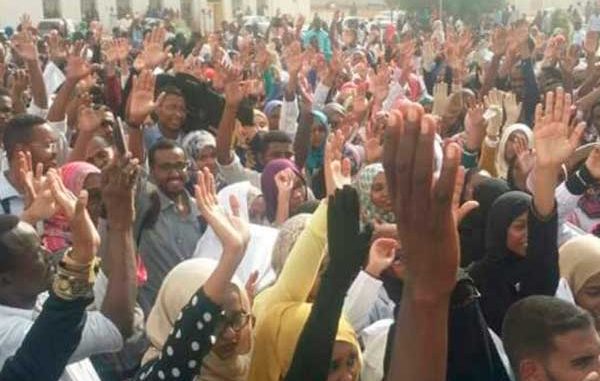
Solidarity with striking doctors needed!
In the early hours of Thursday 6 October, Sudanese doctors began an open-ended strike at government hospitals. This strike comes as a result of the deterioration of the health sector in Sudan. Doctors work for low wages and in unbearable conditions. The doctors face poor workplace safety – as seen recently in several attacks both from the security services and from angry patients. For Sudanese people October is associated with the memory of the 1964 workers’ revolution. In such a climate, the authorities are panicked about the possibility that the doctors’ strike could move on to other sectors of the working class.
The statement of the independent union at the heart of the strike, the Central Committee of Sudanese Doctors (CCSD), has several demands focused on improving working conditions, enacting laws to protect doctors and providing important medical equipment which most hospitals do not have (leading to the loss of life of patients ). Importantly, the CCSD argues that the strike will continue until all the demands are met.
The strike has been exceptionally solid, so far, and has grown bigger by the day, spreading like a wildfire across the country. The number of striking hospitals reached 78 hospitals on Monday 10 October, compared to 65 hospitals last Friday, and 56 on the first day of the strike. The overwhelming majority of Sudan’s hospitals (more than 95%) are now following the movement, with all non-emergency treatments cancelled. Today, as the strike enters its fifth day, reports have filtered through about a hospital that is run by the National Intelligence and Security Service in the capital Khartoum, as well as one run by the Sudanese army, joining the strike.
This action has seen widespread solidarity developing, particularly among doctors and health practitioners; hundreds have announced their involvement in the strike across the country. But this solidarity has gone beyond the doctors themselves. The pharmacists’ committee and the Committee of Sudanese teachers expressed their solidarity with the doctors. The strike has also pushed political parties, such as the Communist Party and the pro-capitalist National Umma Party, and political movements, such as ‘Sudan Change Now’, to publically express their support, as well.
Deterioration of health sector
This is the second doctors’ strike since Omar al-Bashir’s government took power in a military coup in 1989. The first took place in December of that same year; since then, the deterioration of the health sector continued unabated, as a result of government policies, aimed at privatizing the sector and making medication and treatment a commodity, the cancelling of free treatments etc. Tellingly, the government allocates officially no more than 2% of its budget to the health sector, while spending more than a quarter of its budget on military spending.
All the media are closely watched by the security and intelligence authorities, to prevent any circulation of news about the strike. Newspapers editors were phoned and warned not to carry any material on this widening rebellion inside the hospitals. However, news of the strike has reached external media and social networks. Dozens stated that they stand with the strike, notably via the hashtags #SudaneseDoctorsStrike and #Sudanese_Doctors_Strike issued on Twitter over the last few days.
If the doctors win their demands, their action can become a spark for other workers and young people to fight for their demands. That is why the doctors need our unconditional support. Help spread the news about the doctors’ strike by sharing this statement on social media, by posting photos, with banners, in solidarity with the strike, and send protest letters to the Sudanese Health Ministry on info@fmoh.gov.sd, with copies to cwi@worldsoc.co.uk.

Be the first to comment